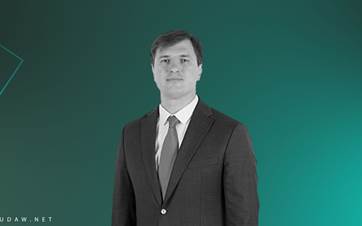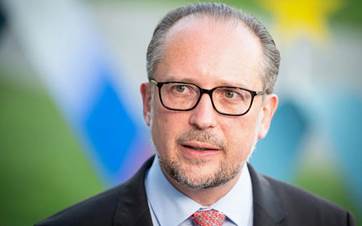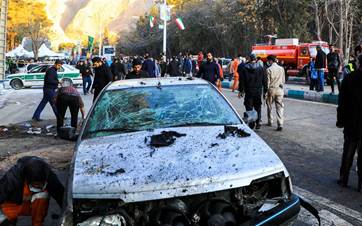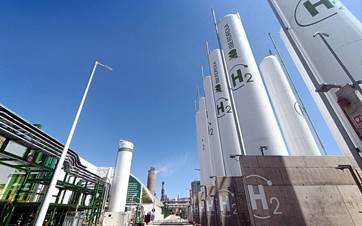As the country rebuilds from almost 20 years of conflict, Iraq is increasingly facing the impact of a climate changing at whirlwind pace. The United Nations estimates upwards of 130 thousand people have been displaced by drought, and our latest report indicates the rate of this displacement may be increasing.
Starting in 2021, the Norwegian Refugee Council (NRC) has issued a yearly report on the impact of drought in Iraq across four broad themes: water security and governance, income and food insecurity, social tension, and drought and displacement. Our analysis shows the devastating impact of climate change on livelihoods, community tensions, and displacement across the country. This year, 60 per cent of farmers across Anbar, Kirkuk, Nineveh and Salahaddin told NRC they were forced to cultivate less land or use less water. 4 in 5 in farming communities in Nineveh and Kirkuk used less money for food. As Haleema, a single mother from Basra told me, “There is very little for us here but hardship, and with each year, it gets worse. Even the water we drink is not safe. It feels like nobody cares for us anymore.”
While everyone across Iraq is impacted, our report finds the Nineveh Plains might be an emerging hotspot. One in five people we spoke to in Baaaj linked climate change to increased social tensions, and one in four are thinking of moving because of drought. One in four farmers in Sinjar and Baaj reported being forced to give up farming in 2023, and almost 40 per cent had to reduce expenditure on food. The people of Nineveh witnessed some of the worst impacts of war and decided to remain or return home. Now, in 2023, it is the climate that might force them to move.
Kurdistan Region is not exempted from the impact of climate change. Just this week, an advisor to the Kurdistan Region’s president revealed that more than half of the Kurdistan Region’s trees have died due to droughts caused by climate change. Farmers from villages just outside of Erbil governorate have told NRC the sudden decrease in available water is alarming. Only a decade ago, farmers had to dig 20 to 30 meters to access groundwater; today, they’re having to dig up to 100 metres. The presence of key figures from Iraq and Kurdistan Region in the 2023 United Nations Climate Change Conference in Dubai (COP28) shows willingness and sense of recognition that climate change threats are here and accelerated national strategy must be developed to mitigate the rapidly changing climate and environment across the country.
For the 1.2 million Iraqis still displaced by conflict, and the millions who have returned home, resettled or relocated, recovery from years of conflict is being crippled by extreme drought, and undermining hard-won gains in livelihoods and income security. In humanitarian contexts, self-reliance includes the ability of an individual or household to provide for essential needs like housing, education and income, safely and sustainably. In the context of Iraq, oftentimes, climate is impacting people’s ability to do so. Since 2010, NRC has worked with government authorities and effected communities to foster self-reliance in support of durable solutions to displacement. Increasingly, our programming has also addressed the need for greater community resilience to climate shocks, including through infrastructure rehabilitation, strengthening market linkages, and introduction of climate-smart agricultural practices. But Iraq’s climate is changing faster than people can adapt.
To mitigate the rapidly increasing risks of climate change, NRC recommends that Iraq swiftly establish monitoring systems to track levels of rainfall, river and groundwater to better inform regulation and allocation of water resources. Second, the development of Iraq’s Green Paper -which seeks to outline the country’s climate ambition and mobilize cross-sectoral collaboration - should be hastened. Given the pace at which the climate is changing in Iraq, the longer policies take to be developed, the faster they will become outdated. Lastly, we urge international financial institutions to take notice and step-up both technical and financial support. The future of millions across Iraq hang in the balance.
Abdullah Omar Yassen is the Advocacy Adviser for the Norwegian Refugee Council (NRC) in Iraq. The NRC is an independent humanitarian agency working in 40 countries around the world, and has supported internally displaced people, refugees, and host communities in Iraq since 2010.
The views expressed in this article are those of the author and do not necessarily reflect the position of Rudaw








Comments
Rudaw moderates all comments submitted on our website. We welcome comments which are relevant to the article and encourage further discussion about the issues that matter to you. We also welcome constructive criticism about Rudaw.
To be approved for publication, however, your comments must meet our community guidelines.
We will not tolerate the following: profanity, threats, personal attacks, vulgarity, abuse (such as sexism, racism, homophobia or xenophobia), or commercial or personal promotion.
Comments that do not meet our guidelines will be rejected. Comments are not edited – they are either approved or rejected.
Post a comment